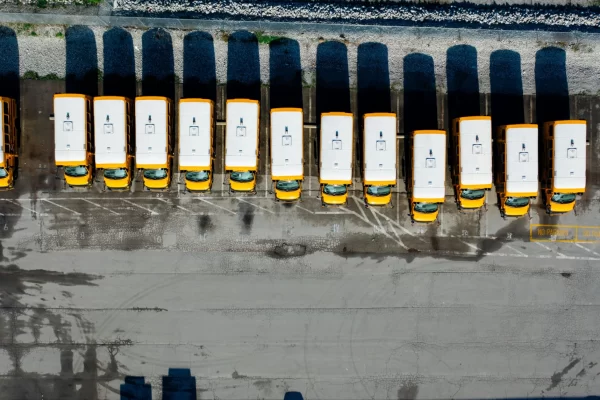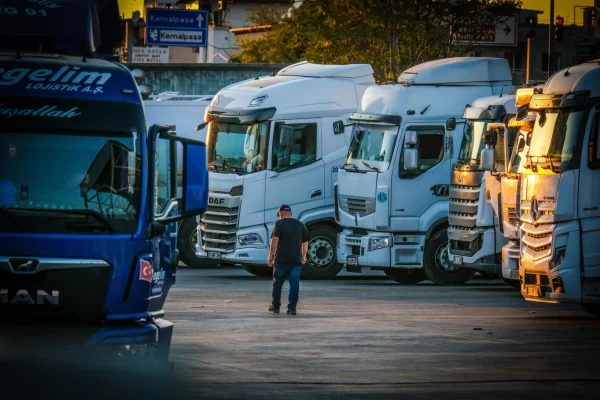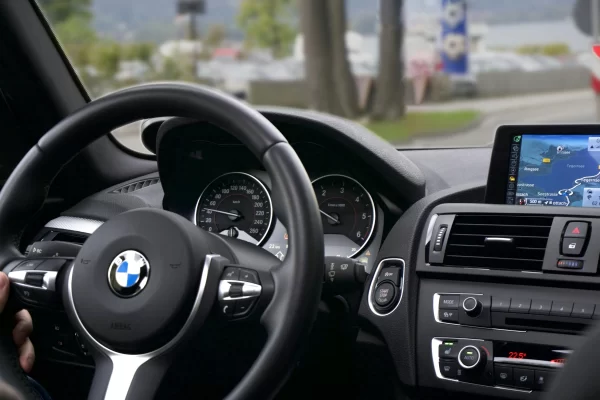Introduction
On a daily basis, fleet managers face a variety of challenges, from logistics and transportation to construction. Fleet managers ensure overall operational efficiency and maintain safety in the overall operation of the fleet. A GPS tracking device, particularly one equipped with a camera, has become an essential tool in fleet management today, offering both real-time location tracking and visual data.
In this blog, we’ll look at why you need this technology to help optimize your operations, as well as the safety and accountability in your fleet.’
What is a GPS Tracking Device with a Camera?
A GPS tracking device with a camera has all of the typical GPS tracking functions, such as live location monitoring and camera functionality. This multi-purpose GPS tracking device with camera allows the fleet manager to not only track vehicle movement, but also take driver footage, video footage of the road, and surroundings. It takes a 360-degree view of operations utilizing GPS data and video records that allows you to remain in control of your fleet’s entire performance and safety, from position monitoring to live footage.
Primary Functions and Features
- Real-Time GPS Tracking – Continuously monitor vehicle location, speed, and routes.
- High-Resolution Cameras – Capture video in real-time to document incidents, unsafe driving behavior, or potential hazards.
- Cloud Storage – Easily access video footage and GPS data from a central system for review or compliance purposes.
- Driver Alerts – Detect and alert for unsafe practices such as harsh braking, speeding, or distracted driving.
Do you want real-time information about your fleet? Learn how Traxxis GPS systems can improve the safety and efficiency of your fleet with our innovative GPS tracking systems.
Key Benefits of Using a GPS Tracker with a Camera
Enhanced Security and Safety
A video-enabled GPS monitoring device allows fleet managers to track the driving behavior of drivers in real time. This reduces the likelihood of accidents caused by distraction or irresponsible driving.
In the event of distracted driving detection or an accident, video footage and location data can be transmitted with accuracy, making sure that such safe practices are followed. Thus, ensuring that the drivers are not liable for outside crimes such as theft or other illegal use of the vehicle.
Need to improve driver safety? See how our tracking systems, which include onboard cameras, are bringing fleet security to a new level.
Real-Time Monitoring and Accountability
A GPS tracker with a camera boost monitoring of your fleet’s performance at any time and from any location. You will have instant access to the data and video feeds, so you can be confident that your drivers will take the best routes and follow all regulatory requirements. This ensures that your team is always responsible and transparent in its behavior.
Improved Driver Behavior
A dash cam encourages good driving behaviors as activities are observed and reviewed, and drivers will adopt safer practices. Such practices, over time, can result in improved road safety, fewer accidents, and lower liability for your company.
Evidence in Case of Disputes
Whether it’s a traffic incident, a customer complaint, or an insurance claim, video footage combined with audio recordings along with GPS data provides unquestionable evidence. It is beneficial when there is the chance of a quick and fair resolution of any type of disagreement. This then results in less downtime and lower legal costs.
Reducing Insurance Premiums
Many insurance companies provide discounts to fleets that has installed GPS trackers with cameras or dash cams. This decreases the likelihood of an accident and vehicle collision, and provides a clear trail of evidence in the event of a claim. This helps cutting your company insurance costs and saving you a significant amount of money over time.
Streamlined Fleet Operations
The type of GPS with cameras or fleet dash cams can optimize a route, reducing fuel usage and idling time. Because of such operational efficiency, you will save money, provide excellent customer service, and increase overall productivity. Furthermore, this equipment allows you to detect problems early, such as needs for maintenance or if your vehicles are being driven in an unsafe manner. This allows you to and fix these issues before they become serious problems.
Ready to boost your fleet’s productivity and minimize costs? Begin optimizing your operations now with Traxxis GPS Solutions.
Choosing the Right GPS Camera Tracker
The finest GPS monitoring device with a camera for your fleet will be determined by just a few clicks and key considerations. Only by making the proper decision can you increase the safety, efficiency, and overall management of your fleet.
Important features to consider when choosing a GPS camera tracker:
When selecting GPS camera trackers, consider the following vital features:
Video Quality: High-definition cameras and fleet dash cam provide clear video footage even in low light or inclement weather. Sharp footage will be vital during the incident review process to both capture footage and ensure the highest quality possible for video evidence.
Storage and accessibility: The information will be saved in the cloud. Thus, huge amounts of data and embedded videos can be stored and accessed remotely. As a result, users will be able to access their footage and tracking data at any moment may it be on their android devices. It is useful for resolving disputes and ensuring compliance.
Durability: In construction and other industries with heavy environments, the GPS tracking device should be sturdy and weather-resistant to provide long-lasting performance.
Driver Safety Features: Including an enhanced driver warning function with AI-based monitoring capacity in your device is essential. It enables fleet managers to identify and be alerted with potential risky driving practices. This then help reduce the likelihood of accidents and promote better driving practice.
Integration with Existing Systems: The most crucial aspect when selecting a camera GPS tracker is that it should connect seamlessly with the software, you’re already using to manage your fleet. It would be able to consolidate all of your data into one app with a single display, simplifying fleet oversight and decision-making. It also decreases the learning curve for your team because everything will be run from a single system that your staff are comfortable with.
If you’re looking for one reliable option, Traxxis GPS ZenduCAM dash camera solution has a comprehensive feature set. High-quality video capture, real-time GPS tracking, and simple cloud integration make it an excellent choice for fleet operators. For more information on how ZenduCAM may meet your fleet’s needs, click here.
Real-World Use Cases for GPS Tracking Devices with Cameras
Logistics and Delivery Services
Logistics focuses on timely delivery and effective route utilization. The GPS tracking device’s built-in camera guarantees that vehicles only follow allowed routes, avoid delays, and take safety precautions. Video video also highlights issues related to delayed or lost trucks and deliveries.
Construction and Heavy Equipment Management
In any sector, particularly those involving heavy machinery, expensive assets must be monitored and then used properly. A GPS camera system allows you to monitor the location, usage patterns, and safety measures for equipment, resulting in fewer thefts and better operational oversight.
Public Transportation and Fleet Services
The fleet will meet demands by ensuring passenger safety when using public transit and planning routes to maximize travel time and distance. A GPS tracking system equipped with audio and a camera will monitor driver conduct in order to prevent accidents and keep an independent record of incidents such as passenger complaints.
Learn more info on how Traxxis GPS Solutions may benefit your business, whether it’s logistics, construction, or public transit.
Future Trends in GPS Tracking Technology
More advanced GPS tracking devices with cameras are getting more innovative due to advances in technologies. Features such as facial recognition, driver fatigue monitoring, and predictive analytics will continue to evolve.
The use of AI and machine learning in GPS tracking is extremely transformative. AI can evaluate large amounts of data from GPS and video, discover patterns, predict dangers, and thus provide fleet managers with anticipation in resolving issues before they occur. All of this will result in even more streamlined fleet operations, fewer accidents, and improved safety.
Conclusion
GPS tracking devices with cameras are no longer a luxury; they are essential for modern fleet management. These devices add substantial value to fleet operators in areas such as logistics, transportation, and construction by enhancing safety, lowering operational costs, and giving critical proof in disputes as it support embedded videos. As technology advances, the benefits continue to grow.
Don’t wait to improve your fleet’s safety and efficiency. Contact Traxxis GPS Solutions today to learn how our GPS tracking systems with cameras and dash cameras can improve your fleet’s operations.
FAQS
How can a GPS tracking device with a camera help in enhancing fleet management?
An extra camera component in a GPS tracker helps fleet management by monitoring driver behavior, recording video, and giving visual evidence. It is an additional strong foundation for ensuring safety, accountability, and operational efficiency.
What factors should I consider when choosing a GPS camera tracker for my business?
Some important considerations in the choosing process may include video quality, storage capacity, or even audio recording capabilities, durability, and seamless integration with your existing fleet management system.
How does using a GPS tracker camera impact operational costs?
Better driving behavior and fewer accidents can help optimize routes, reduce fuel costs, and minimize insurance premiums and total operational expenses for GPS tracking systems equipped with cameras.
Can GPS tracking devices with cameras help in meeting compliance regulations?
Yes, they can ensure that safety standards, driver hours-of-service requirements, and vehicle maintenance protocols are followed by providing documented evidence to support audit requests.
What are the common misconceptions about GPS tracking devices with cameras?
Some prevalent misconceptions about such systems include a loss of driver privacy and hefty costs, which have no factual basis. In reality, the concerns are about data security for drivers, and there are long-term savings in both efficiency and safety.





